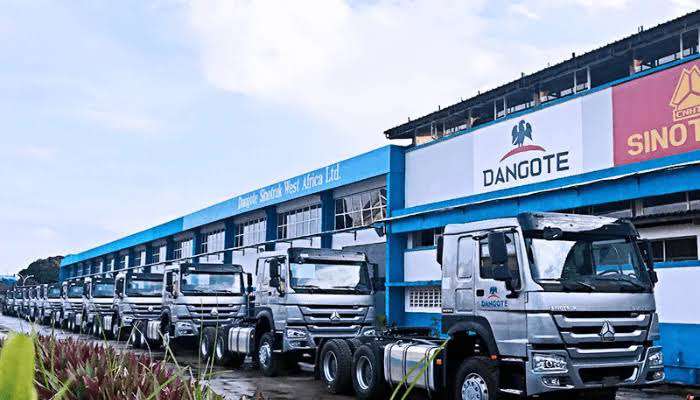Business
Dangote-NUPENG: Nigeria’s oil sector crisis persists as officials walk out of FG’s peace meeting

Nigeria’s oil downstream sector is facing a fresh wave of uncertainty as a standoff between Africa’s richest man, Aliko Dangote, and the National Union of Petroleum and Natural Gas Workers (NUPENG) escalates into a full-blown industrial crisis.
What started as a labour dispute over union rights has snowballed into a battle that experts describe as an “economic war”, one in which Dangote appears to hold the winning cards.
On Monday night, the federal government’s latest attempt to broker peace between the two sides collapsed dramatically after Dangote Group officials walked out of a seven-hour meeting at the Ministry of Labour in Abuja.
The meeting, co-chaired by Labour Minister Muhammad Dingyadi and Minister of State Nkeiru Onyejeocha, was attended by senior NUPENG executives, representatives of the Nigeria Labour Congress (NLC), Trade Union Congress (TUC), officials of the Nigerian Midstream and Downstream Petroleum Regulatory Authority, and delegates from MRS Petroleum.
A draft Memorandum of Understanding (MoU) was presented for review, but disagreements over key resolutions stalled progress. Shortly after, Dangote representatives exited the venue, prompting outrage from organised labour.
“The representative of the Dangote refinery walked out on the minister and organised labour,” NLC spokesperson Benson Upah told journalists after the meeting. “Even when we bent backwards to accommodate his uncompromising behaviour, he still did what he had to do. So we are left with no option but to do the needful. The action continues.”
NUPENG had earlier vowed to embark on an industrial strike beginning September 8, warning that the action could lead to nationwide fuel scarcity.
At the heart of the dispute is Dangote Petroleum Refinery’s ambitious plan to deploy 4,000 Compressed Natural Gas (CNG)-powered trucks for direct distribution of petroleum products.
By bypassing traditional Petroleum Tanker Drivers (PTD) networks, the refinery hopes to cut costs, guarantee efficiency, and control its logistics chain, a strategic move that threatens the livelihood of thousands of NUPENG-affiliated drivers.
The rollout, initially slated for August 15, was delayed by logistical challenges in China, but the refinery insists operations will begin as soon as the trucks arrive.
NUPENG argues that Dangote’s strategy amounts to union-busting, alleging that drivers recruited for the new trucks are being compelled to sign undertakings not to join any union which it said is a clear violation of the 1999 Constitution and International Labour Organisation (ILO) conventions.
In a strongly worded statement, NUPENG accused Dangote of “flagrant disregard for the principles of freedom of association” and warned that the union would not “sit idly while its members’ jobs are eroded in the name of business efficiency.” The union further accused Dangote of ignoring several reconciliation meetings and alleged that MRS Petroleum, a company owned by Dangote’s cousin Sayyu Dantata, was actively recruiting drivers under anti-union conditions.
Experts: ‘Dangote holds the advantage’
While labour leaders portray the fight as a struggle to protect workers’ rights, industry analysts see it as a strategic contest for dominance in Nigeria’s oil logistics space – one that heavily favours Dangote.
“This is just laughable,” tweeted financial analyst Kalu Aja (@FinPlanKaluAja1). “He who has scale always wins in an economic war. You are importing PMS but attempting to fight a man who has a local refinery? He reduced the price; you also reduced the price. He has played the Pac-Man strategy and gone after your cash cows, the logistic trucks. You have no refineries to fight him, checkmate. Dangote has won. If you can’t beat him, join him or build your own local refinery.”
Project manager and oil sector observer Nosa Uwaifo echoed the sentiment. “He took a huge risk, invested, built the refinery, and is now doing everything needed to ensure its success in order to meet his financial obligations,” he said. “It is what it is.”
Dangote’s refinery, a $19 billion mega-project with a capacity of 650,000 barrels per day, is designed to end Nigeria’s dependence on imported fuel. Its sheer scale, combined with Dangote’s integrated business model, spanning cement, fertiliser, and logistics, gives him immense leverage in pricing and distribution.
Labour’s existential threat
For NUPENG, experts say the threat goes beyond jobs. Petroleum Tanker Drivers have long been the union’s most powerful wing, controlling fuel distribution and wielding enormous bargaining power during strikes. Dangote’s logistics revolution threatens to dismantle that influence by creating an alternative, union-free supply chain.
However, analysts warn that a prolonged strike could backfire. With Dangote’s refinery ramping up capacity and more CNG trucks expected in the coming weeks, organised labour risks alienating public sympathy if its actions trigger fuel scarcity and price hikes.
For now, the economic war continues, and as Kalu Aja puts it, “In a game of scale, the biggest player almost always wins.”




